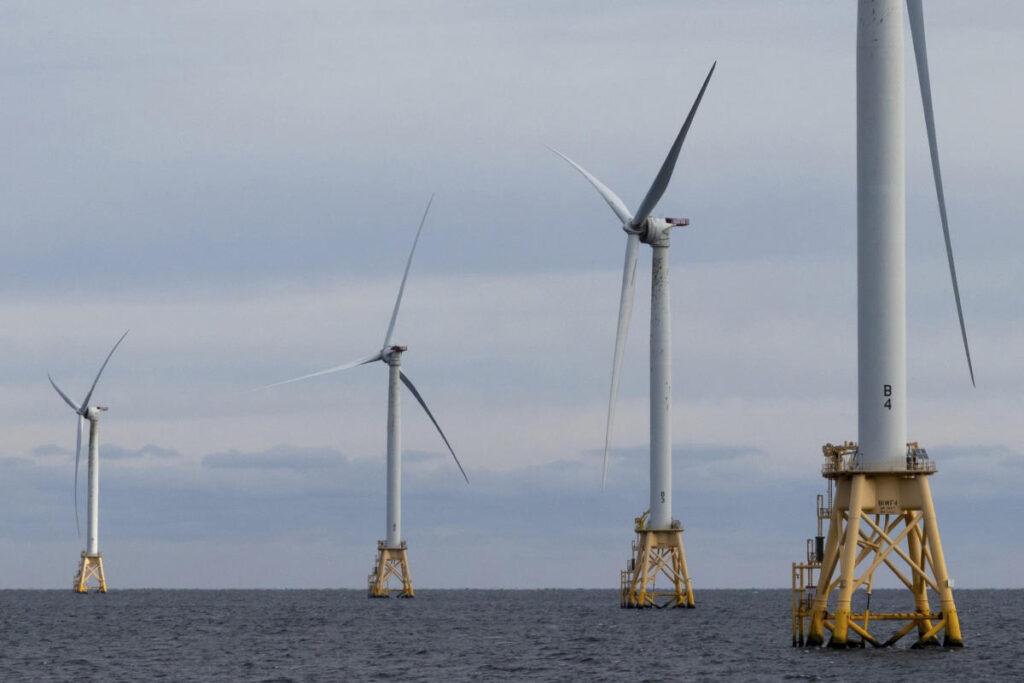The Biden administration is making significant strides in advancing clean energy initiatives, aiming to solidify a legacy of climate action before President Joe Biden’s term ends. With billions invested in offshore wind projects and various clean energy initiatives, the administration is focused on curbing greenhouse gas emissions and creating job opportunities in underserved areas. Energy Secretary Jennifer Granholm has emphasized the critical role of these incentives in revitalizing communities that have historically been marginalized in the energy transition. By prioritizing investments in counties with below-average wages and educational attainment, the Biden administration seeks to provide future-oriented employment opportunities in the burgeoning clean energy sector.
As the Biden administration accelerates its efforts to implement climate policies, Vice President Kamala Harris has echoed this commitment, outlining a climate agenda that emphasizes emissions reduction, renewable energy deployment, and job creation. With a sense of urgency in the White House, recent months have seen a surge in announcements related to environmental grants and project approvals. This includes the availability of $20 billion from a federal “green bank” for various clean energy projects and major approvals for offshore wind farms, thereby contributing to Biden’s target of 30 gigawatts of offshore wind energy by 2030. Additionally, the administration is directing substantial funds towards infrastructure improvements under the bipartisan infrastructure law and the 2022 CHIPS and Science Act.
Energy experts note that the rapid pace of funding and project announcements is partly driven by the looming potential for a change in political leadership. With the possibility of former President Donald Trump returning to the White House, there is heightened urgency for the current administration to finalize clean energy programs and secure long-term investments. Analysts suggest that if Trump were to be elected, he could significantly impede the progress made in renewable energy, potentially delaying the transition away from fossil fuels and rolling back emissions-reducing policies, which could have severe implications for climate goals.
Biden’s climate legislation, known as the Inflation Reduction Act, aims to cut U.S. greenhouse gas emissions by about 40% by 2030. However, experts warn that a reversal in policy under a Trump administration could stall progress, as infrastructure and clean energy initiatives might face significant setbacks. Historical data reveal that Trump’s previous term saw emissions rise substantially, while Biden’s policies have been pivotal in driving down emissions. The analysis argues that each delay in the shift towards clean energy could have profound long-term effects on public health and the environment.
Interestingly, despite the Republican opposition to Biden’s climate legislation, a significant amount of clean energy investment is happening in Republican congressional districts. This highlights a growing recognition among some Republican lawmakers of the value that energy tax credits and clean energy initiatives bring in terms of job creation and economic revitalization. A group of House Republicans has even expressed support for maintaining energy tax credits that have proven beneficial to local economies, indicating bipartisan potential for sustaining clean energy efforts beyond the current administration.
The challenge remains for the U.S. to maintain a commitment to clean energy that spans political cycles. Advocates stress the importance of ensuring that clean energy programs remain steady irrespective of which party controls the presidency or Congress. They argue that highlighting the benefits of clean energy investments across all communities can help foster bipartisan support, which is vital for the sustained success of these initiatives. Overall, the race against time for securing a clean energy future is apparent, and maintaining momentum on climate efforts is crucial for reaching essential emissions reduction targets while fostering economic opportunity.

